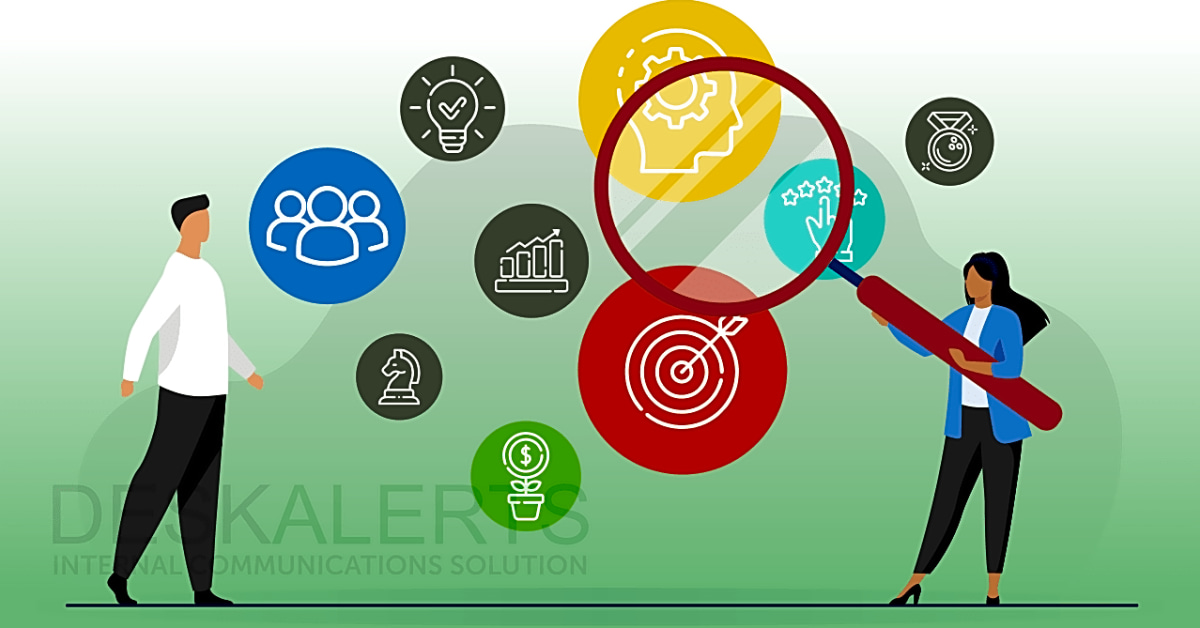Effective communication is essential for any business to thrive, but for consultants, it is even more critical. As a business consultant, your success depends on your ability to communicate clearly and effectively with your clients. This means being able to understand their needs, convey your ideas and recommendations, and build trust and rapport. In today’s fast-paced and highly competitive business world, having clear and effective communication methods is crucial to stand out from the crowd and deliver exceptional results. In this article, we will explore the best practices for clear and effective communication methods for business consultants. Whether you are just starting out in the consulting world or looking to improve your communication skills, this article will provide valuable insights and tips to help you succeed. So, let’s dive in!
As a business consultant, effectively communicating with your clients is crucial for success. Not only does it help build trust and establish a strong working relationship, but it also allows you to better understand their needs and provide tailored solutions. In this article, we will discuss clear and effective communication methods that are essential for any business consultant.
First and foremost, it is important to establish open and honest communication with your clients. This means being transparent about your process, expectations, and fees. It also involves actively listening to your clients and addressing any concerns or questions they may have. For example, if a client is seeking management consulting services, make sure to thoroughly explain your approach and how it will benefit their business.
Another important aspect of clear and effective communication is setting realistic expectations. As a business consultant, you may be working with clients who have high expectations for the results they want to see. It is important to manage these expectations by being honest about what can realistically be achieved within the given time frame and resources.
In addition to setting expectations, it is also important to regularly check in with your clients throughout the consulting process. This allows you to address any concerns or issues that may arise and make any necessary adjustments to ensure the success of the project.
Active listening is a crucial component of effective communication as well. This means not just hearing what your client is saying, but truly understanding their perspective and needs. By actively listening, you can gain valuable insights that will help you provide better solutions for your clients.
In the context of compatibility and communication style, it is important for business consultants to adapt their communication methods to best fit their clients’ needs. Some clients may prefer frequent check-ins and updates, while others may prefer a more hands-off approach. Understanding and adapting to these preferences can greatly improve the effectiveness of communication.
Lastly, communication is a two-way street. It is important to encourage open and honest communication from your clients as well. This means creating a safe and welcoming environment where they feel comfortable sharing their thoughts and concerns. By actively listening and addressing their feedback, you can strengthen your relationship with your clients and ultimately provide better solutions for their business.
In conclusion, clear and effective communication is crucial for business consultants in building trust, managing expectations, and providing tailored solutions for their clients. By being transparent, actively listening, setting realistic expectations, regularly checking in, adapting to communication styles, and encouraging open communication, you can establish a strong working relationship with your clients and ensure the success of your consulting projects.
Marketing Consulting: Communicating Your Ideas Clearly
As a marketing consultant, it is your job to help businesses develop effective strategies to reach their target audience and promote their products or services. This requires clear and effective communication with your clients in order to convey your ideas and recommendations.
One important tip for communicating your ideas clearly is to use simple and concise language. Avoid using industry jargon or technical terms that may confuse your clients. Instead, focus on using language that they can easily understand and relate to.
Another tip is to provide visual aids or examples to support your ideas. This can include charts, graphs, or case studies that demonstrate the effectiveness of your proposed strategies. These visual aids can help your clients better visualize your ideas and make them more tangible.
It is also important to actively listen to your clients and ask for their input. This not only shows that you value their opinion, but it also helps ensure that you are on the same page and understanding each other’s perspectives.
Lastly, be sure to follow up with clear and concise written communication. This can include detailed reports or summaries of your discussions and recommendations. Written communication allows for clarity and serves as a reference for both you and your clients.
Strategic Planning: Communicating the Big Picture
Strategic planning involves setting long-term goals and creating a roadmap to achieve them. As a consultant, it is your responsibility to effectively communicate the big picture to your clients. This not only helps them understand the direction of their business, but also allows them to see how your services can help them achieve their goals.
When communicating the big picture, it is important to use clear and concise language. Avoid using technical jargon that may be unfamiliar to your clients. Instead, focus on using language that they can easily understand and relate to.
Another key aspect of effectively communicating the big picture is actively listening to your clients. This means not only hearing what they have to say, but also understanding their concerns and addressing them in your communication. This shows that you value their input and are committed to helping them achieve their goals.
Additionally, using visual aids such as charts, diagrams, and graphs can help make complex information easier to understand for your clients. This allows them to see the big picture in a more tangible way and can aid in their decision making process.
Overall, strategic planning is a crucial part of effective communication for business consultants. By clearly and concisely communicating the big picture to your clients, you can help them see the value of your services and build a strong working relationship with them.
Effective Communication Strategies for Management Consulting
Management consulting is all about helping businesses improve their operations and achieve their goals. As a consultant, you must have excellent communication skills to effectively work with clients and implement changes. Some key strategies to keep in mind include:
- Active Listening – This involves listening attentively to your clients, asking relevant questions, and clarifying any uncertainties. By actively listening, you can gain a better understanding of your client’s needs and concerns.
- Clear and Concise Language – As a consultant, it is important to communicate complex ideas and strategies in a clear and concise manner. Use simple language that is easy for your clients to understand, avoiding any jargon or technical terms that may confuse them.
- Open and Honest Communication – Building trust with your clients is crucial for a successful working relationship. Be open and honest in your communication, even if it means delivering tough feedback or news. This will show your clients that you have their best interests in mind.
- Tailored Communication – Each client may have different communication preferences. Some may prefer face-to-face meetings, while others may prefer emails or phone calls. As a consultant, it is important to adapt your communication style to best suit your client’s preferences.
Improving Organizational Effectiveness: Encouraging Open Communication
In order to help businesses improve their organizational effectiveness, you must encourage open communication among all team members. This includes both internal and external communication. Here are some ways to promote effective communication:
1. Establish regular check-ins: Set up regular meetings with your clients to discuss progress, address any concerns, and provide updates on your work. This allows for open communication and ensures that everyone is on the same page.
2. Encourage feedback: Create a culture of feedback within the organization by actively seeking input from team members. This not only promotes open communication but also allows for continuous improvement.
3. Use multiple communication channels: In addition to in-person meetings, utilize various communication channels such as email, phone calls, and video conferencing to stay connected with your clients and team members.
4. Be an active listener: Effective communication is a two-way street. Make sure to actively listen to your clients’ concerns and feedback and address them accordingly.
5. Clarify expectations: Clearly communicate expectations and deliverables to avoid any misunderstandings or miscommunications. This helps to establish a mutual understanding and promotes effective communication.
Financial Consulting: Breaking Down Complex Concepts
Financial consulting requires a strong understanding of complex financial concepts. However, it is equally important to be able to explain these concepts in a clear and understandable manner for clients. Here are some ways to improve your communication in financial consulting:
1. Use Visual Aids
When explaining complex financial concepts, it can be helpful to use visual aids such as graphs, charts, and diagrams. These visual representations can make the information easier to understand and digest for clients who may not have a strong background in finance.
2. Break Down Concepts into Smaller Parts
Breaking down complex concepts into smaller, more manageable parts can also help clients better understand the information. Start with the basics and build upon them, using real-life examples to illustrate the concepts.
3. Avoid Jargon
Using technical jargon and industry-specific terms can be confusing for clients who are not familiar with them. It is important to use simple and easy-to-understand language when communicating complex financial concepts.
4. Ask for Feedback
Communication is a two-way street, and it is important to ask for feedback from clients to ensure they are understanding the information being presented. Encourage questions and clarify any misunderstandings to ensure effective communication.
In conclusion, clear and effective communication is a crucial component of being a successful business consultant. By establishing open and honest communication, actively listening to your clients, and tailoring your approach based on their needs, you can build strong relationships and provide valuable solutions. Remember to also utilize specific strategies for each type of consulting service, whether it be management, marketing, financial, strategic planning, or organizational effectiveness.


